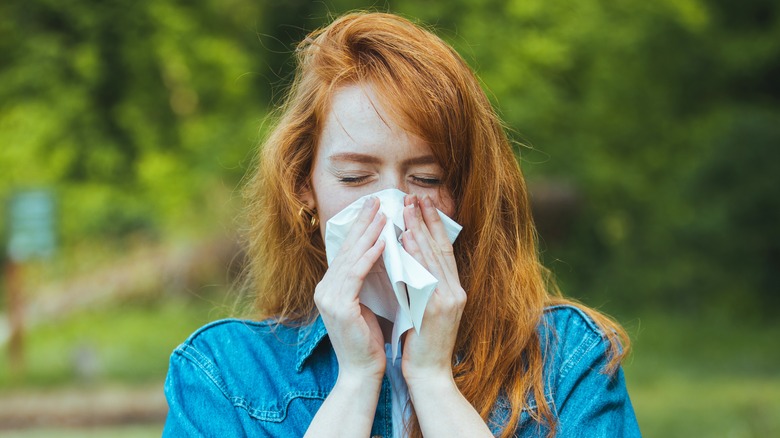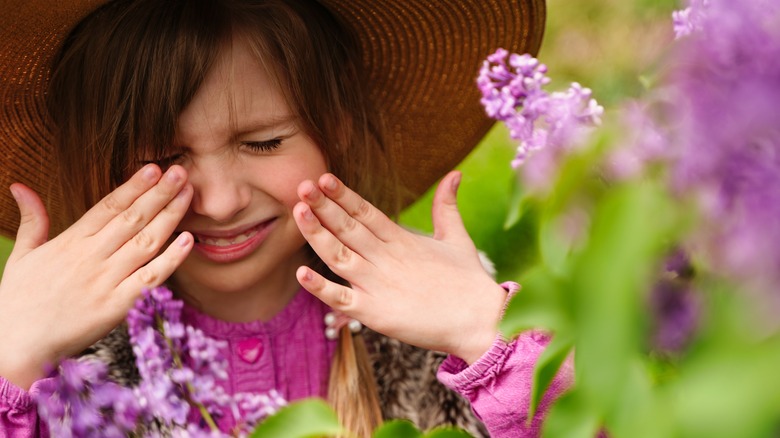If You Suffer From Seasonal Allergies, Here's How Your Immune System Responds
More than 25 million people suffer from seasonal allergies, according to Vox. However, scientists still don't quite know why some people reach for the Flonase during different seasons.
One possible reason could be genetics. If one of your parents suffers from allergies, there is up to a 50% chance that you'll develop them yourself, according to Carolina Asthma & Allergy Center. That likelihood jumps to 80% if both parents have allergies. There's an error in a gene that regulates the immune system that results in inherited allergies, according to TEDEd.
You could also suffer from allergies if you avoid many allergens while growing up. That's because your immune system isn't familiar with the many allergens in the air. According to the Mayo Clinic News Network, some people don't develop seasonal allergies until they move to a geographic location where they aren't used to the pollen.
If you also notice your seasonal allergies seem worse when you're stressed, it's not in your head. Stress can make allergies worse (via Penn Medicine).
How your immune response creates seasonal allergies
Sometimes the body misinterprets pollen as a threat to your health, according to Vox. As a response, your body's white blood cells produce antibodies that send messages to other white blood cells that this substance is a threat. These antibodies produce an allergic reaction if you're exposed to this substance again (via Mayo Clinic). The immune system releases histamine, which can result in coughing, a runny nose, or swelling of some body tissues.
The American College of Allergy, Asthma, & Immunology says that allergy shots teach the immune system to tolerate this substance by exposing your body to it little by little. You can also keep seasonal allergies in check by monitoring the pollen count each day. If you're allergic to tree or grass pollen, avoid going out in the evening when those allergens are high. If ragweed has you reaching for your nasal spray, mornings have the highest pollen count.


